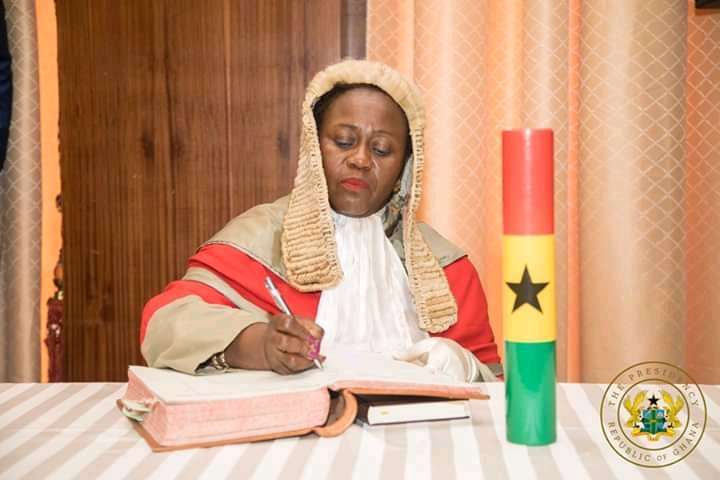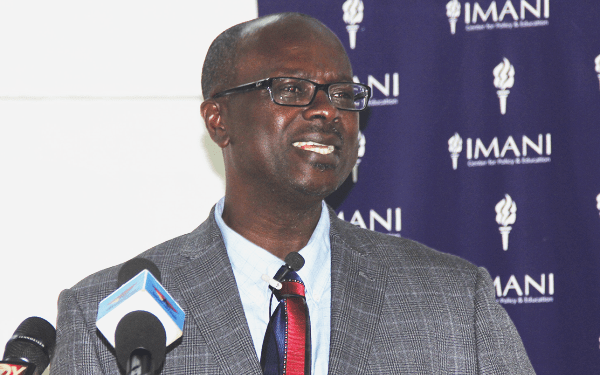Professor Stephen Kweku Asare, Democracy and Development Fellow in Public Law and Justice at the Ghana Centre for Democratic Development (CDD-Ghana), has challenged the court holidays currently observed by superior court judges in Ghana.
These holidays, which last for two months, according to Professor Asare, a renowned legal scholar are rooted in colonial traditions, describing them as not only outdated but also unconstitutional on several grounds.
“The superior court judges are currently on a two-month vacation. As a result, lawyers who practice before them are also compelled to take a break, and their clients’ cases—whether involving their life, liberty, livelihood, or even lighter matters—must also be put on hold. Yet, year after year, we lament over case backlogs, trial delays, and other inefficiencies in our judicial system”.
Professor Stephen Kweku Asare, D&D Fellow in Public Law and Justice at the Ghana Centre for Democratic Developmentnormal
GOGO’s Five-Point Constitutional Challenge
In his latest statement, Professor Asare, representing the civil society group Good Governance Advocates (GOGO), presented a robust five-point constitutional challenge against the court holidays:
RelatedPosts
According to Professor Asare, the practice of court holidays usurps Parliament’s exclusive authority to declare public holidays, as stipulated under the Public Holidays Act.
He pointed out that by effectively creating its own holidays, the judiciary is overstepping its bounds and infringing on the powers granted to Parliament under Article 93(2) of the Constitution.
This, he argued, is a clear violation of the principle of separation of powers that is fundamental to Ghana’s democratic governance.

Discrimination Against Lower Courts
Professor Asare further indicated that the court holidays apply only to the superior courts, namely the High Court, Court of Appeal, and Supreme Court, while the lower courts continue to function.
This, according to Professor Asare, creates an unequal system where cases in the lower courts proceed while those in the superior courts come to a standstill.
He argued that the differentiation amounts to discrimination against the lower courts, contravening Article 17 of the Constitution, which guarantees equality before the law.
The renowned legal scholar also asserted that the court holidays unduly restrict access to justice for Ghanaians.
By shutting down the superior courts for two months, Professor Asare posited that individuals who have cases pending before these courts are deprived of their fundamental human right to access the courts, a right that is protected under Article 14 of the Constitution.
This restriction according to the CDD-Ghana Fellow is particularly problematic for those whose cases involve urgent matters such as the protection of life, liberty, or livelihood.
Violation of the Right to a Speedy Trial
Additionally, the constitutional activist, Professor Asare pointed out that the court holidays contribute to significant delays in the adjudication of cases, thereby violating the right to a speedy trial, enshrined in Article 19(1) of the Constitution.
He strongly opined that the delay in legal proceedings not only prolongs the resolution of cases but also exacerbates the backlog of cases that has become a perennial problem in Ghana’s judiciary.
Finally, Professor Asare argued that court holidays infringe on the economic rights of lawyers, asserting that by forcing them into an involuntary vacation, the holidays restrict their ability to practice law and earn a livelihood during this period.
This, he claimed, violates Article 24 of the Constitution, which guarantees the right to work and to pursue a trade, occupation, or profession of one’s choice.
Professor Asare’s constitutional challenge is not merely academic; it strikes at the heart of a practice that many in the legal profession consider sacrosanct.
His arguments imply that the judiciary, which is supposed to be the guardian of the Constitution, is itself engaged in practices that contravene constitutional principles.
According to him, any legal challenge to the court holidays would be adjudicated by the very judges whose vacation practices are being called into question, raising questions about the impartiality and fairness of such proceedings.










Discussion about this post